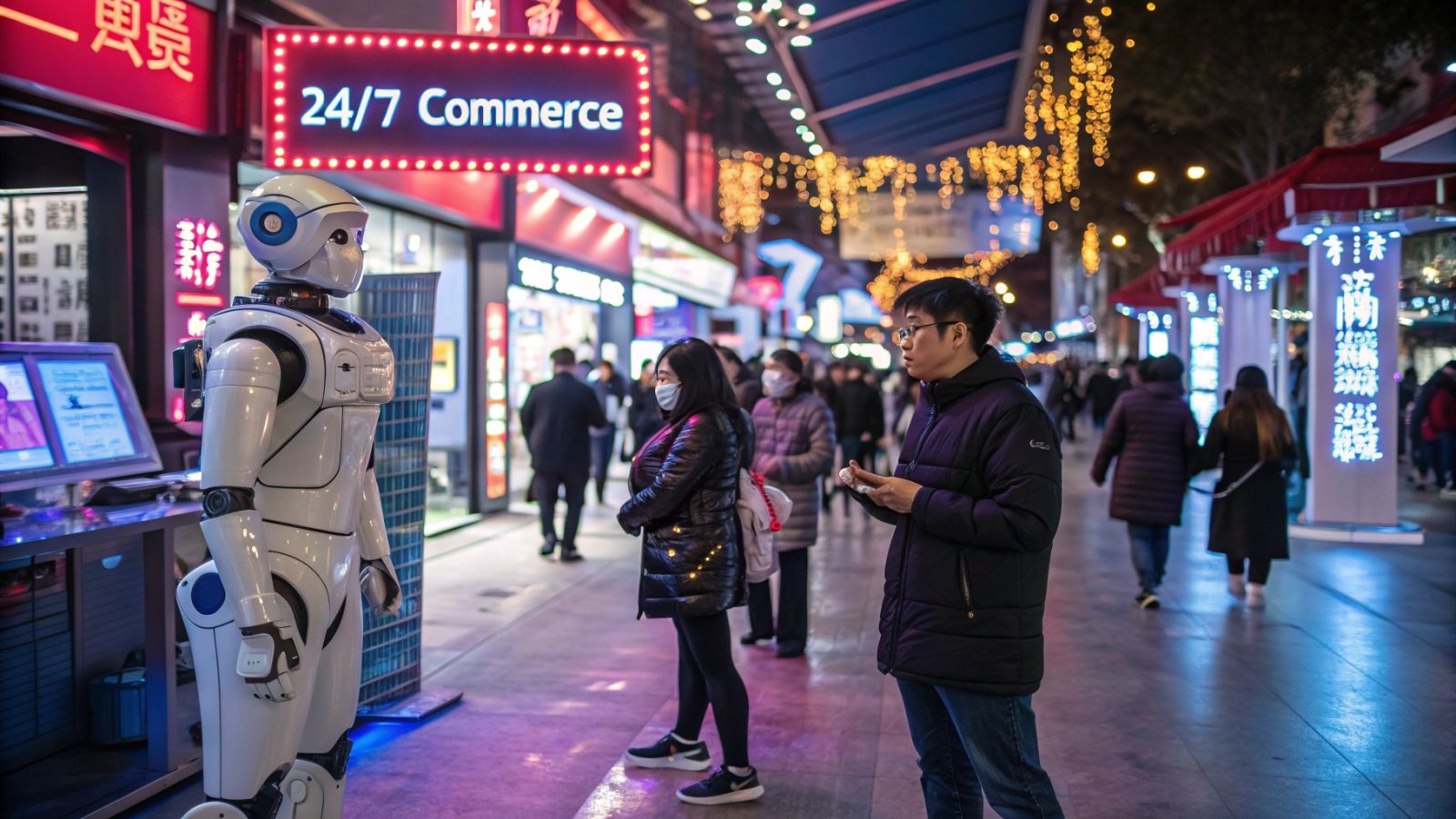Introduction
AI e-commerce in China is reshaping retail: on TikTok Shop, AI avatars stream 24/7, personalize journeys, and extend commerce across borders.
The integration of artificial intelligence into China’s e-commerce blends social dynamics with sales, using uninterrupted virtual livestreamers. As noted by industry reporting, this boosts efficiency and reach, transforming promotion, engagement, and conversion. TikTok Shop, operated domestically by Douyin, shows how AI, NLP, and machine learning enable adaptive recommendations, while investment in AI and robotics underpins a smarter, more responsive trade infrastructure. The mix of social content, real-time analytics, and always-on selling is redefining consumer expectations and brand strategy.
Context
China advances AI and robotics to build intelligent digital retail with social-commerce platforms at the core.
This shift is strategic, spanning automation, policy support, and new customer relationships. Platforms create “virtual malls,” where 24/7 continuity and personalization are the norm. Analyses point to an ecosystem targeting operational speed, scalability, and international openness, influencing supply chains, logistics, and marketing.
AI e-commerce China: TikTok Shop’s role
AI avatars power continuous live commerce with tailored recommendations and adaptive tactics.
24/7 virtual livestreamers
AI agents replace physical presence, sustaining engagement and promotion at any hour.
They simulate human dialogue, respond in natural language, and adapt scripts and offers based on audience signals. The result is a scalable, always-on sales channel.
Personalization via NLP/ML
Language and learning models infer signals and trends for precise suggestions.
NLP and machine learning unlock deeper consumer insights and forecast emerging trends, sharpening message relevance and campaign performance.
Technology providers
Domestic AI players enable lifelike avatars and real-time analytics.
Solutions from China’s AI ecosystem, including providers like Baidu and DeepSeek, support content generation, dialog management, and continuous sales optimization.
Impact on cross-border trade
AI dissolves time-zone limits, widening global reach and sales continuity.
Automated, adaptive interactions aid cross-border operations. Platforms tailor regional campaigns, optimize logistics and messaging, and reduce inefficiencies during demand spikes, sustaining global competitiveness.
Robotics and AI: the synergy
AI plus robotics strengthens logistics, product demos, and smart retail.
Together they improve inventory handling and real-time presentations, fueling smart retail ecosystems with faster, less manual processes. Social-commerce becomes a connected hub linking demand, supply, and fulfillment.
Economic implications
Efficiency, scalability, and new sales formats drive growth and digital strategy.
AI enables 24/7 operations, reduces friction, and raises channel productivity. This elevates market penetration, raises experience standards, and supports innovation-oriented digital commerce policies.
Public perceptions and reactions
Convenience and personalization meet caution over ethics and privacy.
Consumers value instant interactions and tailored advice, yet question authenticity, data use, and potential manipulation. Debate also covers workforce effects and the need for responsible deployment.
Risks and limits
Privacy, transparency, and jobs demand clear rules and governance.
Reliance on automation can introduce bias and reduce human touch. Data control, consent, targeting practices, and reskilling plans are essential to mitigate downsides.
Conclusion
China’s e-commerce shows how AI and social-commerce converge into a 24/7, personalized, scalable model. TikTok Shop exemplifies a path where innovation, analytics, and automation redefine experience, supply chains, and global reach.
FAQ
- What is AI e-commerce China on TikTok Shop? It’s AI-led 24/7 live selling via virtual avatars with adaptive recommendations.
- How do 24/7 virtual livestreamers work? They use NLP/ML to interact, present products, and tune offers in real time.
- What is the cross-border trade impact? It removes time-zone frictions, expands reach, and makes operations more responsive.
- What risks does AI e-commerce China pose? Privacy, algorithm transparency, and workforce effects call for strong governance.
- What roles do Baidu and DeepSeek play? They power avatars, content generation, and real-time analytics for optimization.
- Can SMEs benefit from this model? Yes, automation lowers costs and opens access to international markets.
